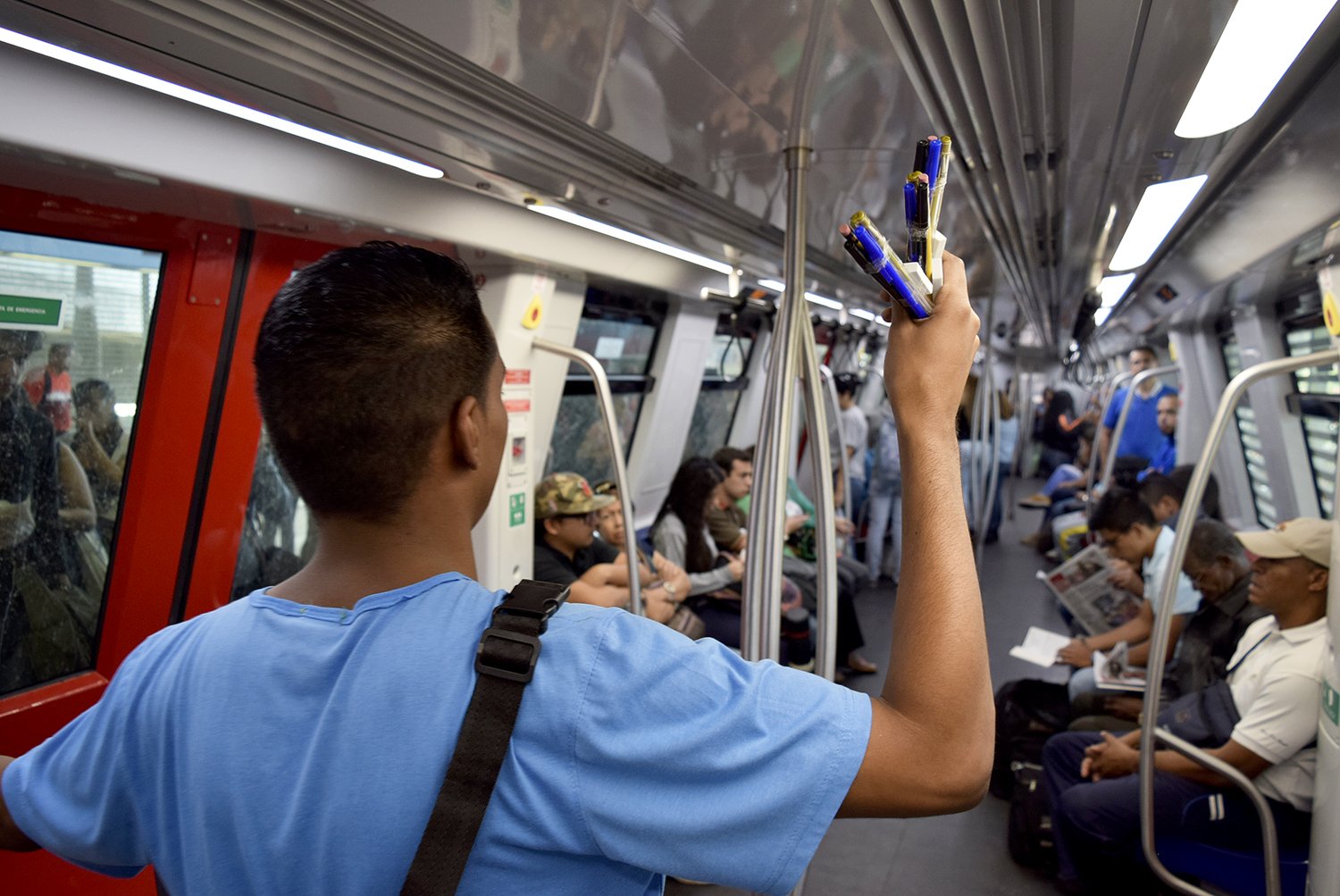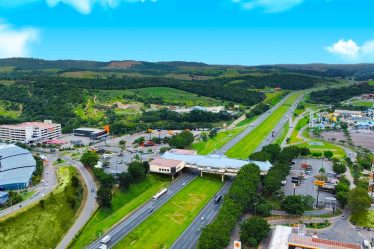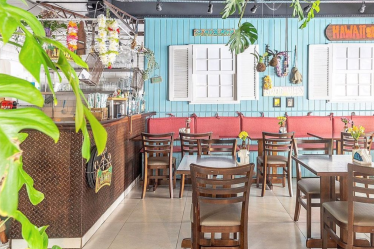
ALEX SABINO
SÃO PAULO, SP (FOLHAPRESS)
Quickly, Vivian Nascimento and her daughter Aline, 21, who is three months pregnant, line up sweets in the small one square meter stall next to the ATMs at the CPTM (Companhia Paulista de Trens Metropolitanos) Barra Funda station. The biggest rush is with peanuts.
“This is my favorite”, he points out, showing the delicacies in spicy, savory and Japanese versions. “They are very good.”
Even before everything is ready, customers start to buy, which helps with the estimated profit of between R$3,500 and R$4,000 per month. This could be bigger, but she charges cheaply. Sell more, but earn less.
While the two get the space ready, Wellington Nascimento (not related to them), 33, goes from car to car. He always starts with the same speech about “the new technology that arrived on the subway”. He sells counterfeit wireless headphones from JBL, one of the most famous brands on the market.
They usually cost R$250, but he offers them for R$20.
The products are not his. For each successful negotiation, he keeps R$5. He estimates that, per month, he can earn R$2,000. But it's not that simple.
“The subway and train market is dynamic, friend. Today I have headphones, yesterday it was a charger. Whatever they put in my hand, I unroll it and sell it,” he says.
For the subway and CPTM, this is an illegality that must be curbed. The sellers themselves call themselves “muppeters” and try to protect themselves from inspection. For this purpose, they use WhatsApp groups or combined signals for each station. They already know which are the most “dangerous”.
“Although it’s difficult to understand that. There are undercover guards and there are more and more of them,” says Daniela, 25, who refused to give her last name. It starts at 9 am and usually goes until 8 pm selling food on CPTM trains. She could be a bullet. It can be salty. It could be chocolate. The R$2,200 she makes in profit per month, she claims, helps support the house and her three-year-old son.
There is no number of illegal vendors operating in public transport services in São Paulo.
The perception that the quantity has increased since the start of the Covid-19 pandemic is only visual and not supported by statistics.
CPTM reports having carried out 4,252 seizures of goods in December last year alone. 208,612 items were retained. This is an average of 571 per day.
The São Paulo metro, operator of lines 1, 2, 3 and 15, says that in 2023 3,600 confiscations were carried out, with an average of 300 per month. In total, 111 thousand items were retained.
ViaQuatro (operator of line four) and ViaMobilidade (line five) did not respond.
Seized perishable products are destroyed, as are pirated electronics. The remaining non-perishable items are sent to the state government's Social Solidarity Fund.
Security guards are the nemesis of subway and train thieves. There are sellers who claim to have lost more than a thousand reais worth of merchandise at once. And there is nothing to do, no one to turn to. They are still removed from the hotel and need to buy another ticket if they want to return. Nobody is arrested. Several are already known to the guards, which creates a permanent game of cat and mouse.
In the work ethic of these salespeople, shouting to advertise products or leaving them visible when the train/subway is stopped and the doors are open is highly frowned upon. Most people, upon arriving at a station, sit on an empty bench. If there isn't one, it remains motionless, all looking like a landscape. Some say that the service interruption is “the commercials”.
There is also the mental technique of interrupting the sales pitch to say “I'll be right there, lady” and signaling to an imaginary person. Nobody called, but the seller believes that the simulation encourages other consumers, these real ones, to buy.
“I've thrown a lot of product out of the train window. Then I would go down the tracks and look for it. I couldn’t lose”, confesses Vivian, who spent ten years as a hammer on CPTM trains. “It is a profitable service. For every real I sold, 40 cents was a profit”, she confesses.
Today, it has a legal totem at Barra Funda, one of the busiest stations in São Paulo, because of the Nos Trilhos do Empreendedorismo program, created in 2019 by CPTM in partnership with Sebrae. There are 36 spaces in different locations on the train transport network that are given to those who take the course and are drawn.
The last one took place in 2022 and CPTM expects registrations to open this year. The number of places to be drawn will depend on the expiration of the current users' contract.
Each person can stay at the stations for 18 non-renewable months, so rotation is guaranteed.
“In the last course, there were 200 people. It is an opportunity for people to sell their products legally and safely. Even those who are not selected start to have an idea of what it means to undertake. Those chosen need to obtain a CNPJ and present a project of what their cart will look like. Many people get a taste for entrepreneurship and understand what to do. There are five days of course”, says Simone Martins, head of the business management department at CPTM.
Whoever is awarded first has the right to choose the season. The most popular are Barra Funda, Luz and Brás.
“In the next course, we will have these stations and those on line 7. On lines 10, 11, 12 and 13, CPTM signed a contract with Global Varejo, which will commercially explore the spaces. People [do programa] They stay there until the end of the 18-month agreement”, adds Simone.
Vivian was drawn in 2022 and was given a location in Ferraz de Vasconcelos. To get to and from his home every day, in Franco da Rocha (both cities in greater São Paulo), it took four hours in total. As the end of the space transfer period approached, she began to feel distressed. What was she going to do in the future?
Without her mother knowing, Aline signed up for the CPTM program, took the course and was selected first in her class. She chose the coveted Barra Funda.
“I couldn’t stop crying when it happened,” says Vivian.
All assignees pay rent with a 70% discount and a six-month grace period. The price varies from R$200 to R$400 depending on the value per square meter of the location.
Due to the number of vacancies available, few will be able to do so.
“I see myself as an entrepreneur. I buy a big bag of candy, make smaller packages and come to sell. I make my working capital and sometimes I don't even make a profit. I use everything to buy something that gives me a bigger profit later in the day. You need to have a head. This is a business like any other. I am at risk of having the merchandise confiscated, yes. But those who have businesses can also be robbed”, says Edmilson Correa, 46, unemployed for six months at the entrance to Carandiru station, north of the capital, when he decided to take his livelihood from the subway.
He says that, in good months, he earns “more than R$3,000”.
There is a technique used in the past by Vivian and which is still valid. In the early hours of the morning, it is best to offer candy. When lunch approaches and people are hungrier, packets of snacks yield more. If the weather is mild, it's chocolate. If it's very hot, something to cool you down (which happens more on the CPTM than on the subway).
“It is important that people are aware that this trade is illegal and should not be encouraged”, reminds Simone Martins.
For authorities, illegal products carry the risk of accidents, especially electronic ones. Not to mention that it is not known where, how they were manufactured and they do not pay taxes. The sellers of these items earn commissions but are backed by gangs of smugglers.
If a lot of people are selling chocolate at the same time, the probability that the smugglers have been supplied with stolen cargo is considerable, metro and CPTM officials believe.
“Be here [na Barra Funda] It awakened the desire to have my own business. When [o contrato] Once it's finished, I'm going to put together something in my garage, although I don't know if it will yield the same results as on the train. But my dream is to have a large candy retailer. Who knows?”, dreams Vivian.
The morning before, Aline [como sua filha, mas sem dizer o sobrenome] faced a marathon. She offered a cleaning liquid that she swears will remove stains from any clothes. To show this, in each carriage, she took a white t-shirt from her backpack, placed it on a hanger and hung it inside the train. He smeared it with black grease and then cleaned it with his spray. All this while she declaimed the wonders of her product.
She spoke very loudly, a guarantee that she would be heard throughout the carriage. Aline estimates that she can earn around R$200 per day. There is a supplier, but she doesn't say who it is.
“I always need to go fast. To sell, move to another carriage and escape the guards.”


